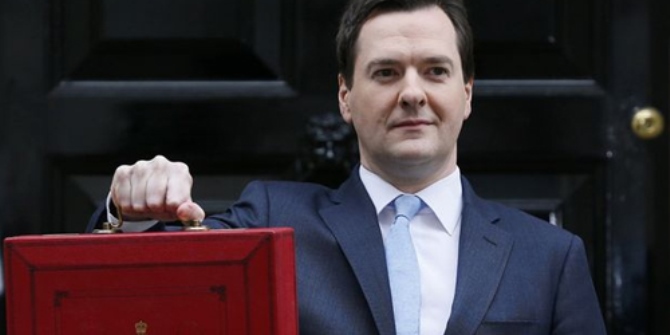
 While others have tried to look into their crystal balls and predict the effects of the government’s Comprehensive Spending Review on the economy and society, it is just as important to look at how it was carried out. Professor George Jones argues that the political games and ploys used reflect the realities of cabinet government.
While others have tried to look into their crystal balls and predict the effects of the government’s Comprehensive Spending Review on the economy and society, it is just as important to look at how it was carried out. Professor George Jones argues that the political games and ploys used reflect the realities of cabinet government.
The Comprehensive Spending Review was larger in scale than previous exercises in budget cutting, but it was essentialy carried out in a traditional way. The usual tactics were employed by those defending their turf and by the various sectional lobbyists. They vividly displayed the bleeding stumps of where popular programmes would be slashed while reflecting a compromise between the spending departments.
The Department of Communities and Local Government (CLG) and local councils have come out of this spending review in the worst position, with the deepest cuts by far. This result was predictable. The ministers around the cabinet table taking the decisions were motivated first and foremost to save their own departmental spending. It was easier for them to make cuts in areas for which they are not directly responsible. The dynamics of cabinet government shifted the burden of cuts to those not sitting around that table. Local councils’ lack of representation gave them the raw deal.

Through the summer there was a great deal of back-and-forth haggling between departments and the Treasury about how spending cuts would be decided and how they would be presented. As David Cameron made great pains to point out during the Conservative party conference earlier this month, Eric Pickles and his Communities and Local Government department was the exemplar. By settling early with a 51 per cent cut, Pickles showed that he was a big player he was within the coalition, and was able to participate in decision-making about other departments on the key cabinet committee. Ironically, he did not have to take the blame for the consequences of the cuts he had already agreed to.
Local councils will have to sell the Government’s increased localism agenda to their constituents, as well as to administer the bitter pill of over £5.6 billion in cuts in their expenditure- all while there is a freeze in council tax. Perhaps they should have been given more freedom, but realistically it would only be the freedom to cut services. When libraries and other social services are cut councils will bear the brunt of people’s ire – not Eric Pickles, and certainly not the cabinet. They will say that these decisions are made by the local authorities; in other words, blame them, not us.
Click here to respond to this post.
To access the Government Spending Review source documents and key commentaries, see the clickable list here.
Cuts logo is courtesy of Eric Tastad and the Creative Commons.







Allistair Hayman at the Local Government Chronicle has written a very telling article on Eric Pickles and his recent performance at the Local Councils’ Annual Summit. What he also says, is that Pickles may not be as close to the Cabinet as generally thought – being the Tories’ link to the working class north – if he messes up, he may be very quick to go.
Well James….from this retired public servant you have my sympathy and empathy….but I think it`s time for our own version of the Tea Party in which we finally cut loose from American control while we still have anything approaching a social democracy.
Public schooling is about turning out unprincipled grovellingly ambitious self-serving confidence tricksters without a shred of interest in oiks like us…..so it`s a simple fact that they will serve the rich and powerful and knife us in the back now they are part of a global middle class serving global capitalism.And …..very sadly….so will “our” media and the entire political class …regardless of their affectations of socialism ,liberal humanitarianism,etc.
If you have ever watched the BBC`s Question Time and wondered what planet it was beamed from? Well you may have been closer to the real preoccupations of our Wall street/Washington global aristocracy than you realise.
As someone who works for an organisation funded by CLG, I would like to assure any readers that Pickles does seem to take a particular delight in slashing his own wrists. And yet it seems that the national civil servants will be cut through natural wastage and voluntary redundancy whilst the front line will be unceremoniously garrotted.
Thanks, Cabinet, you rich public school boys really understand what it is like to need every penny that you earn!
Unfortunately for the people involved, there’s no way the 40 % staff cuts at CLG can be met by attrition and/or VR alone, and there will be definitely be compulsory redundancies, potentially in large numbers depending how many go willingly early. Whatever rump is left of CLG at the end will be a very different animal, and it will be a grim place to work for those left to rattle around what will be a two thirds empty HQ building.
Pickles must be unique amongst the current Cabinet, as a one man suicide squad seeking in effect to euthanise ‘his’ area, rather than the rest of them scrambling to preserve their departmental budgets at the expense of all others… Wonder what his reward from Cameron will be?